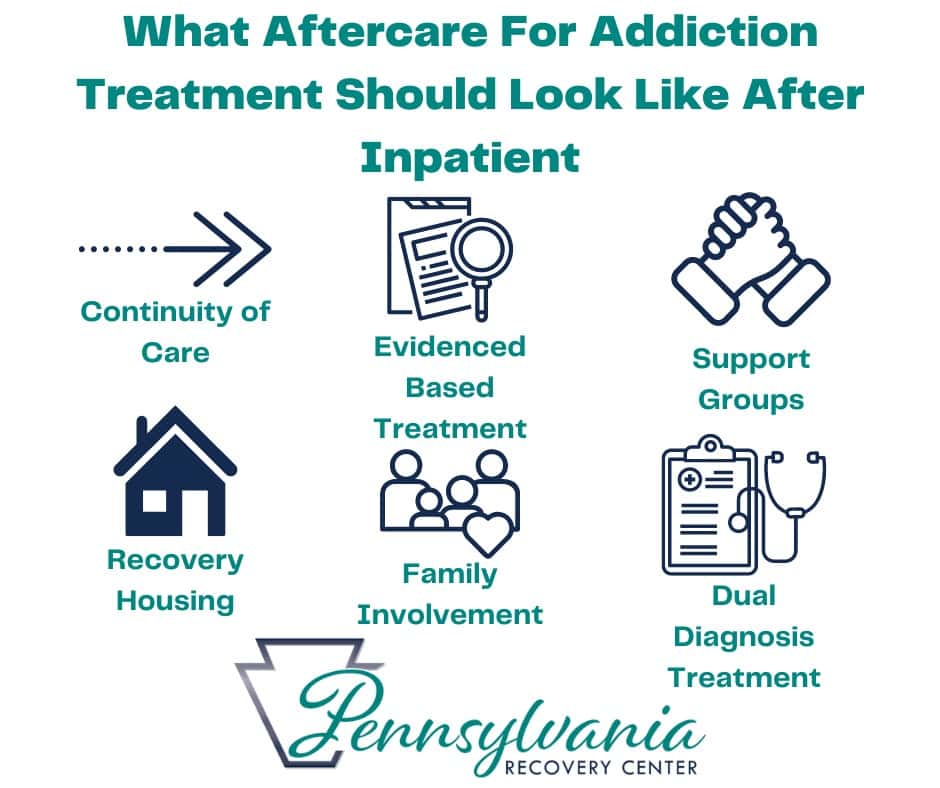Discover the transformative results of rehab near Chester NJ
Wiki Article
Comprehensive Overview to Drug Abuse Therapy: Recognizing, Strategies, and Enduring Recuperation
Drug abuse describes the hazardous or damaging usage of psychoactive substances, including alcohol and illicit medicines. It is not merely an issue of self-control or bad decision-making-- it's a complex problem influenced by organic, psychological, and social elements. People dealing with chemical abuse commonly experience uncontrollable drug-seeking habits in spite of adverse effects in their individual, specialist, and social lives. Over time, these materials can modify mind function, impair judgment, and produce psychological and physical dependence. Recognizing the nature of Substance Abuse is the primary step towards addressing it effectively.The sources of chemical abuse are diverse. Genetics, psychological wellness disorders, environmental pressures, trauma, and direct exposure to materials at a very early age can all add to the growth of addiction. It is commonly interlinked with conditions such as clinical depression, stress and anxiety, or post-traumatic stress and anxiety problem (PTSD) For lots of individuals, drugs and alcohol come to be coping mechanisms-- tools to run away emotional pain or stress and anxiety. This short-term alleviation rapidly provides way to lasting consequences, as tolerance constructs and the person requires more of the Substance to achieve the exact same result. (addiction treatment)
Acknowledging the indicators of Substance Abuse early on can protect against the condition from intensifying. Common indication include modifications in habits, forget of responsibilities, withdrawal from liked ones, economic troubles, and physical symptoms such as weight management, exhaustion, or poor hygiene. When left neglected, drug abuse can cause serious wellness difficulties, damaged relationships, and even sudden death. Consequently, very early treatment and accessibility to therapy are essential for people struggling with dependency.
The Relevance of Looking For Chemical Abuse Therapy
Looking for expert treatment for Substance Abuse is one of one of the most crucial choices an individual can produce their health and wellness and future - Inpatient rehab. Dependency is not something that can be gotten rid of by determination alone-- it needs structured treatment, support, and constant support. Treatment programs are made to attend to both the physical reliance and the underlying mental or emotional concerns that drive addicting behaviors. Without therapy, the cycle of relapse and self-destruction commonly continues, placing the person's life and well-being in dangerThe importance of specialist treatment exists in its capability to offer a regulated and safe setting for recovery. Throughout cleansing, doctor help individuals manage withdrawal signs and symptoms that can be agonizing and potentially life-threatening. After treatment, detox and counseling sessions allow people to challenge the root triggers of their dependency, establish dealing abilities, and rebuild their sense of self-regard. Treatment likewise aids re-establish healthy routines, framework, and liability-- all of which are crucial for lasting recovery.
Past the psychological and physical facets, Substance Abuse treatment plays a substantial duty in restoring partnerships and social performance. Dependency frequently causes busted trust, isolation, and strained household characteristics. Via family members therapy and group sessions, individuals can reconstruct interaction and reconnect with enjoyed ones. By entailing household participants in the recovery process, treatment programs enhance the support network needed for keeping soberness. Basically, looking for therapy is not simply concerning giving up medicines or alcohol-- it has to do with reclaiming one's life and creating a structure for a much healthier, a lot more meeting future.
Types of Substance Abuse Treatment Programs
There is no one-size-fits-all strategy to treating addiction. Each person's journey is special, therefore are their treatment requires. Substance Abuse therapy programs can be classified right into several kinds, varying from inpatient rehabilitation to outpatient therapy and alternative care. The selection of treatment relies on aspects such as the seriousness of dependency, the existence of co-occurring mental wellness conditions, and the individual's way of life and support system.Inpatient or Residential Therapy offers a very structured setting where clients stay in a treatment center for a particular duration, typically in between 30 and 90 days. This sort of program uses round-the-clock clinical supervision and intensive treatment sessions. It's perfect for people with severe addictions or those that have actually relapsed numerous times. Inpatient treatment removes the person from day-to-day triggers and temptations, enabling them to concentrate solely on recovery. Therapies might consist of cognitive-behavioral therapy (CBT), dialectical habits treatment (DBT), and team counseling, all targeted at assisting people recognize and manage their addiction.
Outpatient Treatment Programs use even more flexibility, allowing individuals to proceed with their day-to-day responsibilities while attending arranged treatment sessions. This technique is often appropriate for people with light to modest dependencies or as a step-down stage after completing inpatient rehab. Outpatient programs emphasize accountability and long-lasting relapse avoidance approaches. They may include individual counseling, medication-assisted treatment (MAT), and support system such as Narcotics Anonymous (NA) or Alcoholics Anonymous (AA)
In addition to these, alternative and alternate therapies are ending up being significantly prominent. These programs resolve the mind, body, and spirit connection by integrating practices such as yoga, meditation, art therapy, and nutritional counseling. Many centers additionally supply dual-diagnosis therapy for those taking care of both dependency and mental health disorders. This comprehensive approach ensures that the individual obtains well-rounded care that advertises healing on multiple degrees.
The Advantages of Substance Abuse Therapy
The advantages of undergoing Substance Abuse therapy prolong far past avoiding medicines or alcohol. Among the most prompt advantages is improved physical wellness. Long-lasting Substance Abuse takes a toll on the body, influencing Click This Link important body organs such as the liver, brain, and heart. Via cleansing and healthcare, the body starts to repair itself, bring about much better power degrees, improved sleep, and a more powerful immune system. Nourishment and health and fitness programs within rehabilitation centers additionally boost physical recuperation.
Mental and psychological health and wellness benefits are just as considerable. Addiction often conceals underlying mental problems that need to be dealt with. Throughout therapy, people access to licensed specialists and therapists who help them navigate feelings of shame, sense of guilt, or trauma. By establishing psychological recognition and click here now resilience, people discover much healthier methods to manage tension and activates. Cognitive-behavioral therapy (CBT) and other evidence-based strategies equip individuals to alter adverse thought patterns that contribute to relapse.

Evidence-Based Techniques in Modern Dependency Therapy
Today's Substance Abuse therapy methods are based in scientific research study and clinical practice. Evidence-based therapies make certain that people obtain interventions shown to be reliable. Among one of the most widely utilized techniques is Cognitive-Behavioral Treatment (CBT), which aids clients identify and transform assumed patterns that cause Substance usage. By recognizing the connection in between emotions, thoughts, and habits, individuals can learn to deal with triggers in much healthier ways - Inpatient rehab. CBT is often integrated with various other treatments to resolve co-occurring problems such as anxiety or anxietyOne more effective approach is Medication-Assisted Therapy (FLOOR COVERING), especially for opioid and alcohol addiction. MAT utilizes FDA-approved medicines such as naltrexone, methadone, or buprenorphine to decrease food cravings go to website and withdrawal signs and symptoms. When combined with therapy and behavior modification, MAT considerably enhances therapy retention and minimizes relapse prices. It enables patients to maintain their lives while focusing on psychological healing and restoring connections.
Team and family therapy are also important parts of evidence-based therapy. Team sessions create a space for people to share their stories and gain insights from others in healing. Family therapy, on the other hand, addresses the relational damage caused by addiction. It aids liked ones comprehend the nature of the disease and furnishes them with devices to supply assistance while setting healthy and balanced limits. These collective therapeutic approaches enhance the recovery procedure and promote long-term recovery.
Constructing a Life After Treatment: Sustaining Long-Term Healing
Healing does not finish after completing a therapy program-- it's a lifelong journey that needs dedication, discipline, and recurring support. Transitioning back to everyday life can be challenging, as individuals are confronted with triggers, stress factors, and responsibilities that can evaluate their sobriety. This is where aftercare programs play a crucial function. Aftercare may include recurring therapy, peer support system, sober living arrangements, and relapse avoidance planning. The goal is to assist people maintain the development they have actually made and avoid slipping back into old patterns.Developing a new way of life centered on health and wellness and purpose is important for long-lasting success. Many individuals locate satisfaction by seeking hobbies, health and fitness routines, education, or volunteer work. Constructing an organized everyday routine helps avoid boredom-- a common trigger for regression. Reconnecting with family members, fixing connections, and bordering oneself with favorable influences even more reinforces a healthy and balanced way of life. It's also important to recognize that setbacks can take place, however they don't specify the person's journey. What issues most is the determination to seek aid and continue progressing.
Eventually, sustained recuperation is regarding change-- literally, psychologically, and mentally. It includes redefining one's identity and searching for meaning past addiction. People who commit to lasting healing often come to be advocates, advisors, or support numbers for others having problem with chemical abuse. Their stories of durability work as powerful suggestions that healing is feasible. With the right therapy, assistance, and way of thinking, any person can get over addiction and construct a fulfilling, substance-free life.
Final thought: A Path Towards Healing and Hope

Looking for specialist treatment for Substance Abuse is one of the most vital decisions a person can make for their health and wellness and future. Past the emotional and physical elements, Substance Abuse therapy plays a significant role in bring back partnerships and social performance. Substance Abuse treatment programs can be categorized into a number of kinds, ranging from inpatient recovery to outpatient counseling and holistic treatment. Inpatient or Residential Treatment supplies an extremely organized environment where patients live in a treatment center for a certain period, typically in between 30 and 90 days. The benefits of undertaking Substance Abuse therapy extend far beyond staying away from drugs or alcohol.
Report this wiki page